Pomerium, Alexander Blachly, Director
Antoine Busnoys - In hydraulis
from CD Musical Games of the Renaissance
In hydraulis quondam Pithagora
Admirante melos, phtongitates
Malleorum secutus equora
Per ponderum inequalitates,
Adinvenit muse quiditates
Epitritum ast hemioliam
Epogdoum et duplam perducunt
Nam tessaron penthe concordiam
Nec non phtongum et pason adducunt
Monochordi dum genus conducunt.
Hec Oggeghen cunctis qui precinis
Galliarum in regis latria,
O practiculum tue propaginis
Arma cernens quondam per atria
Burdgundie ducis in patria.
Per me, Busnois, illustris comitis
De Chaurolois indignum musicum,
Saluteris tuis pro meritis
Tamquam summum Cephas tropidicum:
Vale, verum instar Orpheicum.
|
On an occasion when Pythagoras was wondering
at the tones in water organs [and] the tonalities
of hammers, having followed with his eyes the surfaces
according to the inequalities of the weights,
he discovered the essential natures of the muse.
These produce epitrite and hemiola,
epogdous and duple, for they lead towards
the harmony of fourth, fifth, and also
tone and octave, while they connect
the species of the monochord.
Ockeghem, you who sing before all
in the service of the King of the Gauls,
O strengthen the practice of your generation,
examining these things on occasion in the
halls of the Duke of Burgundy in your fatherland.
By me, Busnoys, unworthy musician
of the illustrious Count of Charolais,
be greeted for your merits as the
highest trope-uttering Cephas [i.e. Peter];
Farewell, true image of Orpheus.
—Latin text emendation and English
translation by David Howlett
|
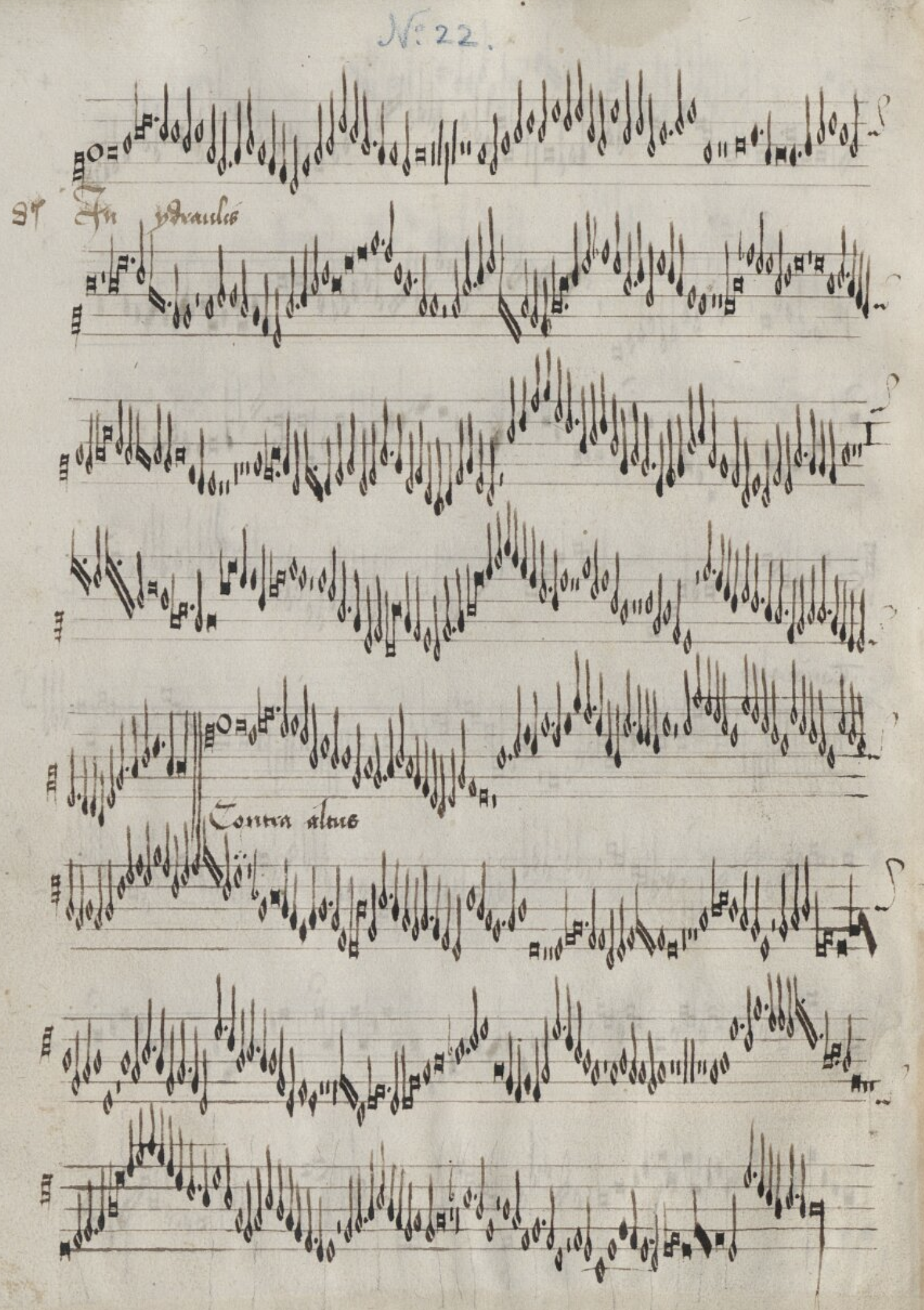
Munich 3154, fol. 27v.
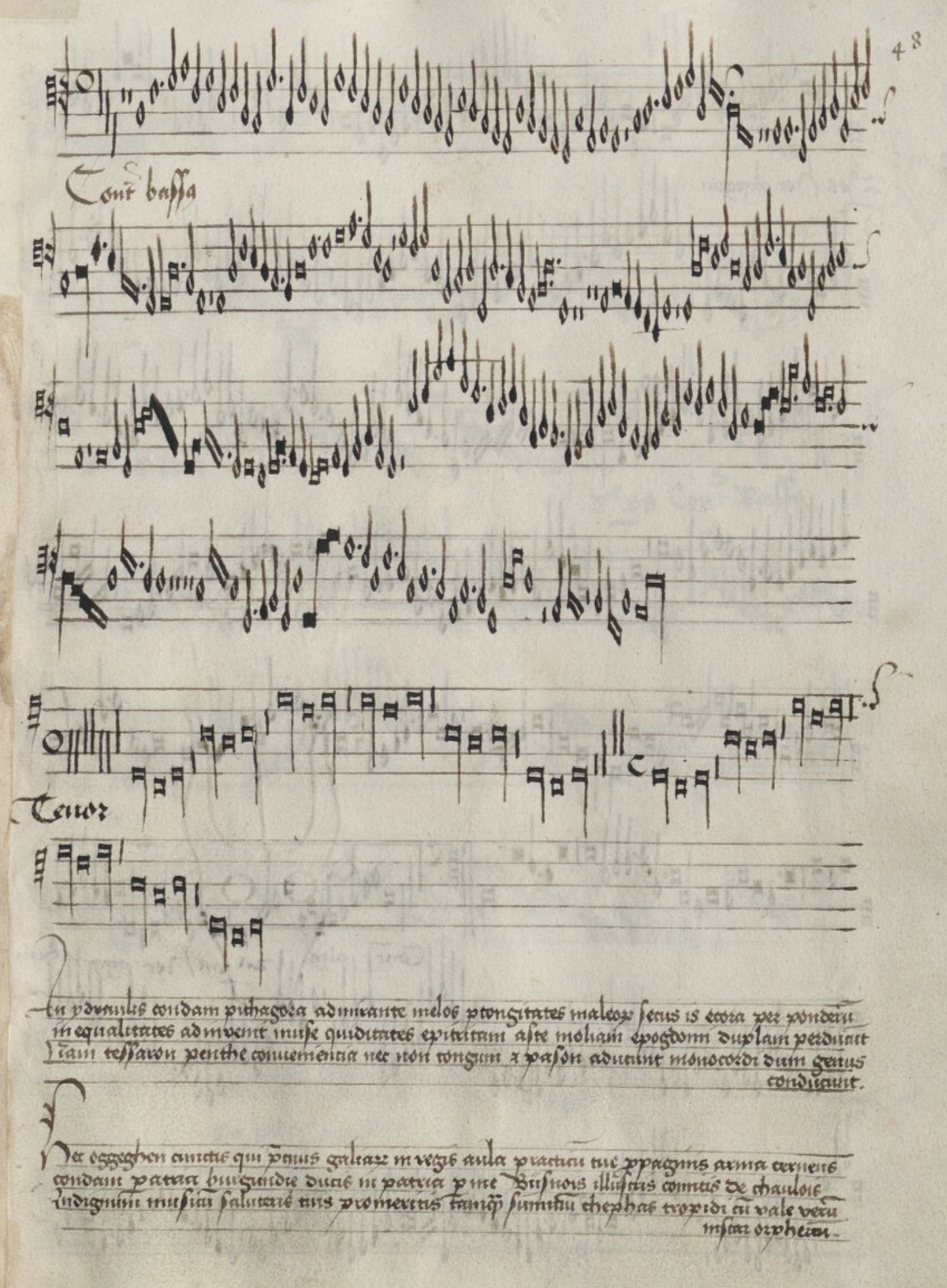
Munich 3154, fol. 28r.

Munich 3154, fol. 28v.
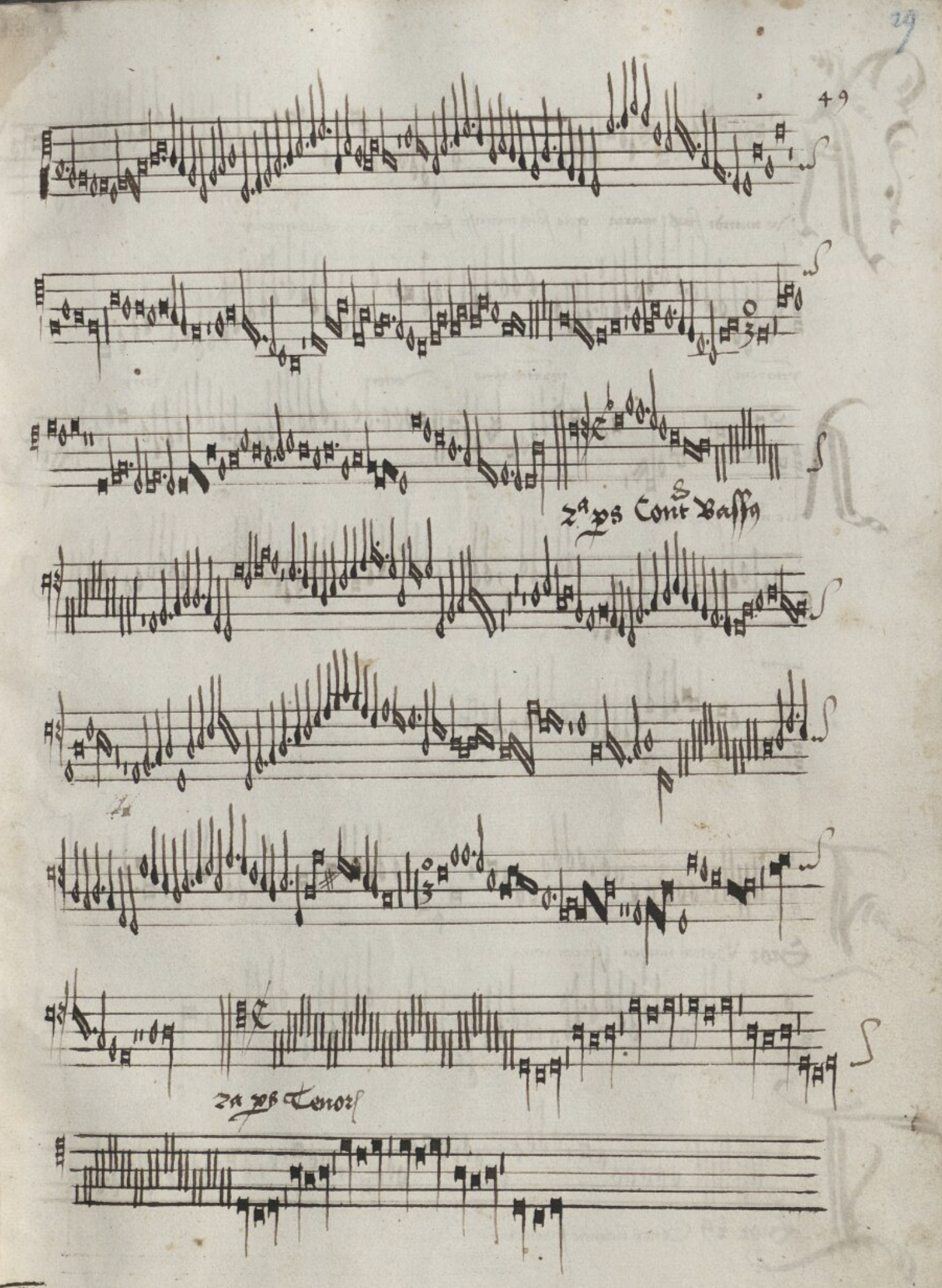
Munich 3154, fol. 29r.
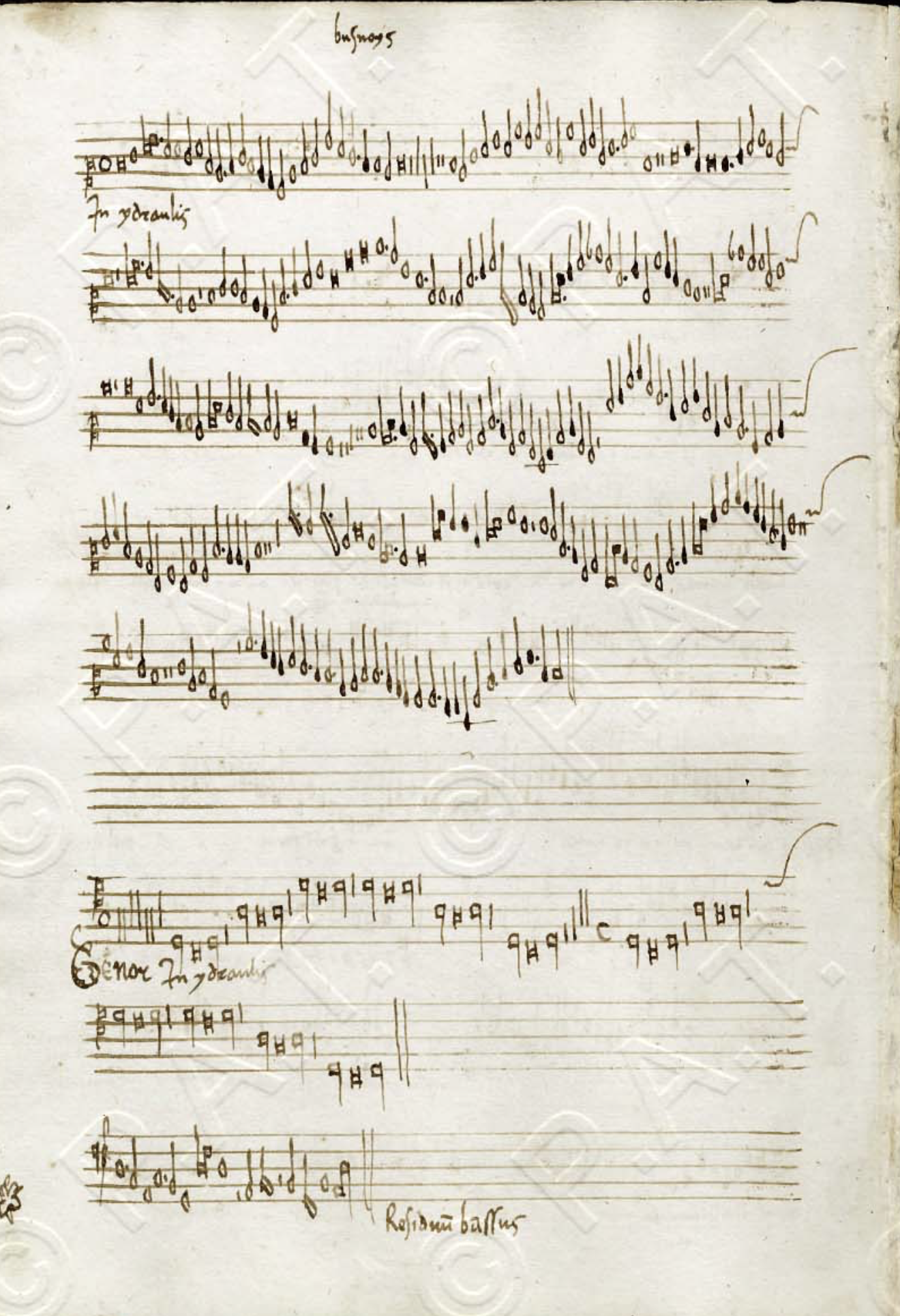
Trent 91, fol. 35v.
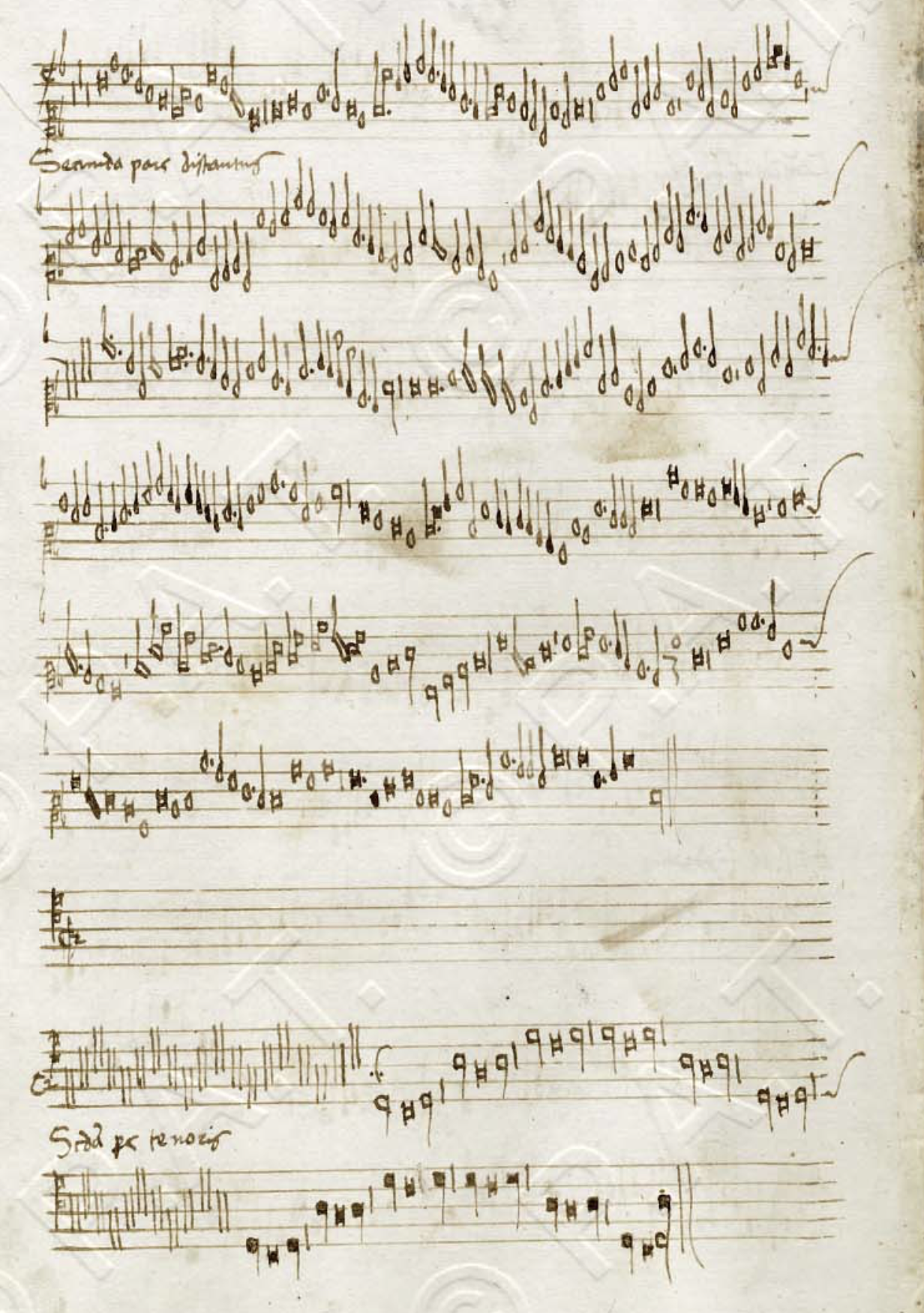
Trent 91, fol. 36r.
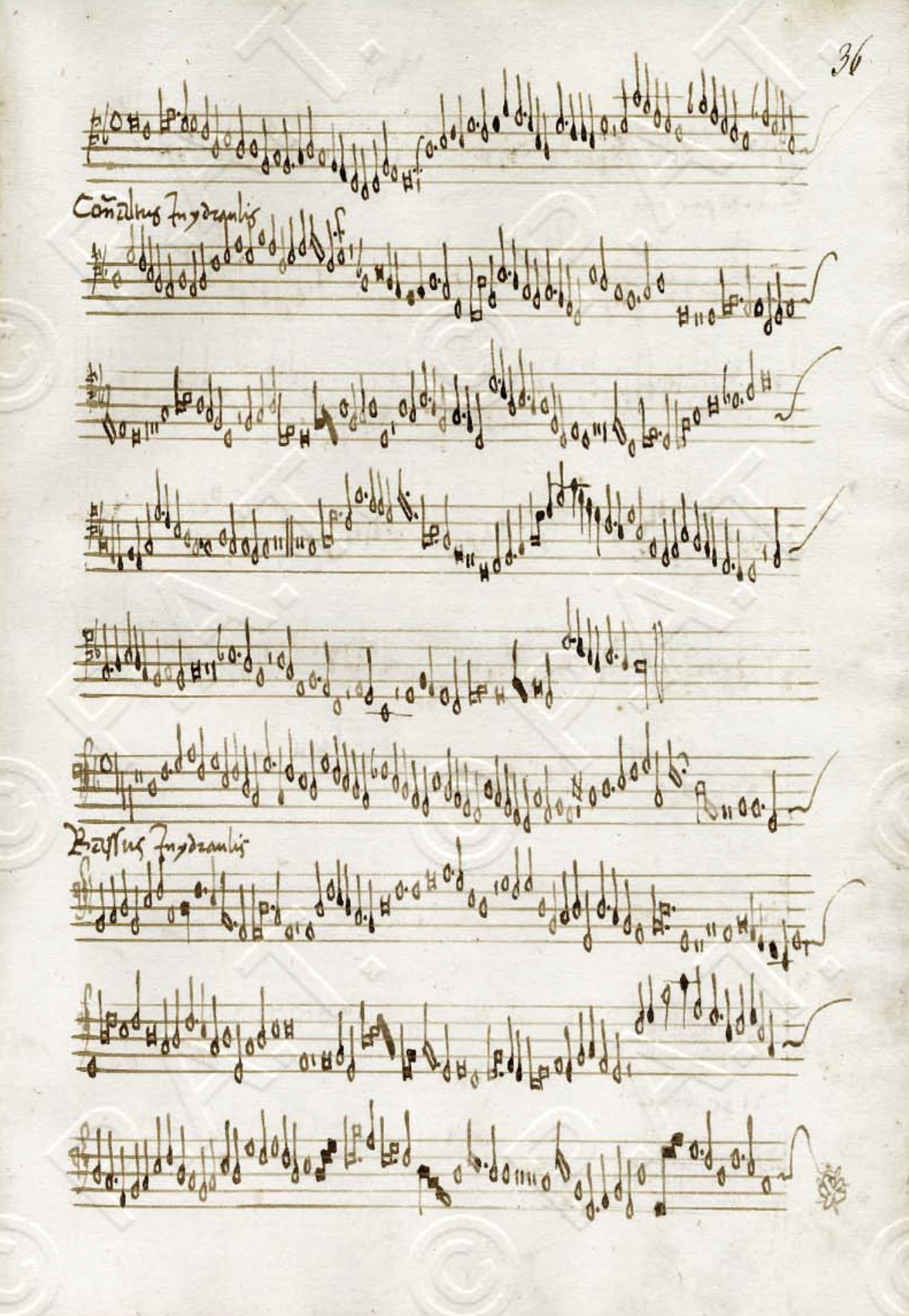
Trent 91, fol. 36v.
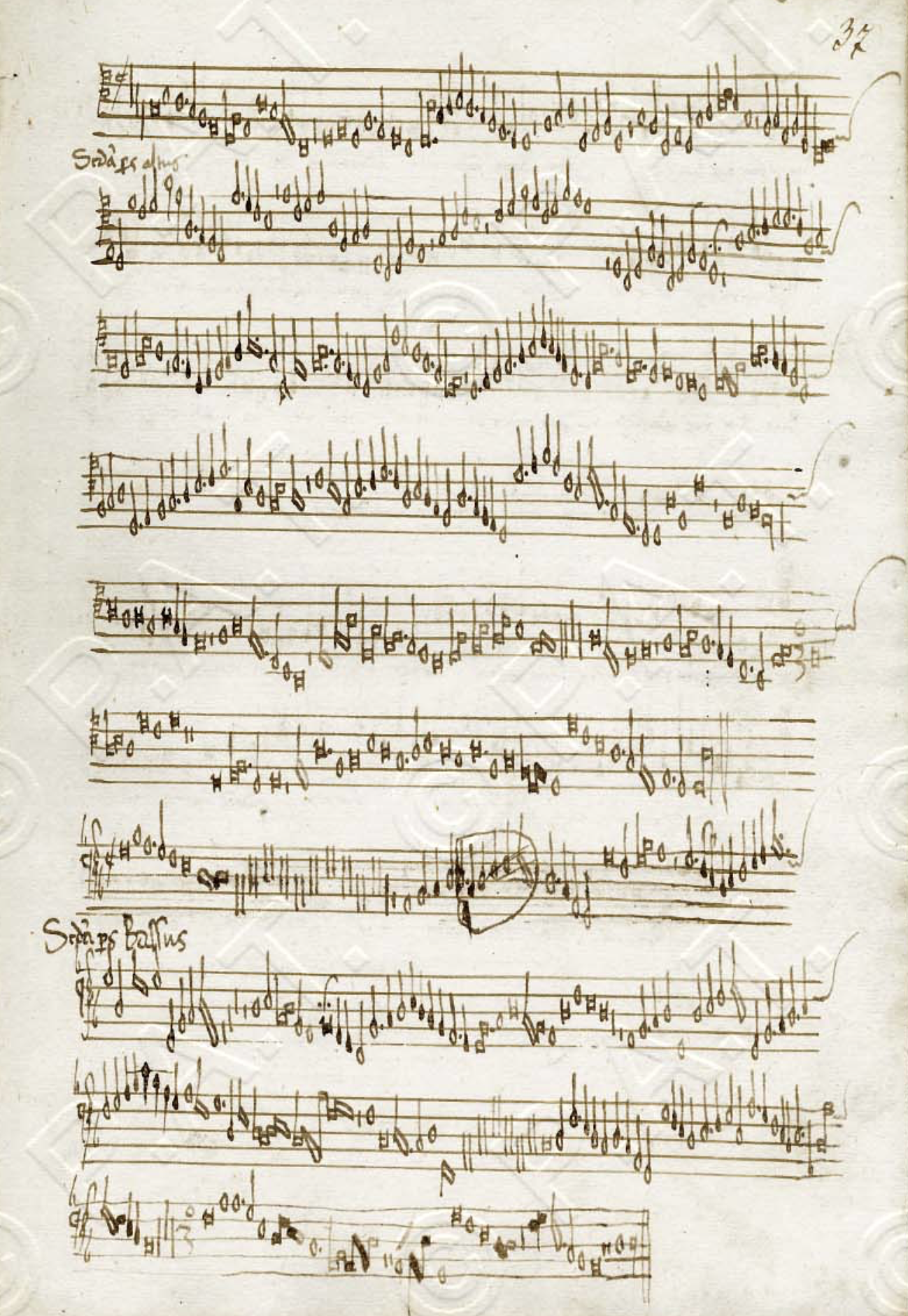
Trent 91, fol. 37r.
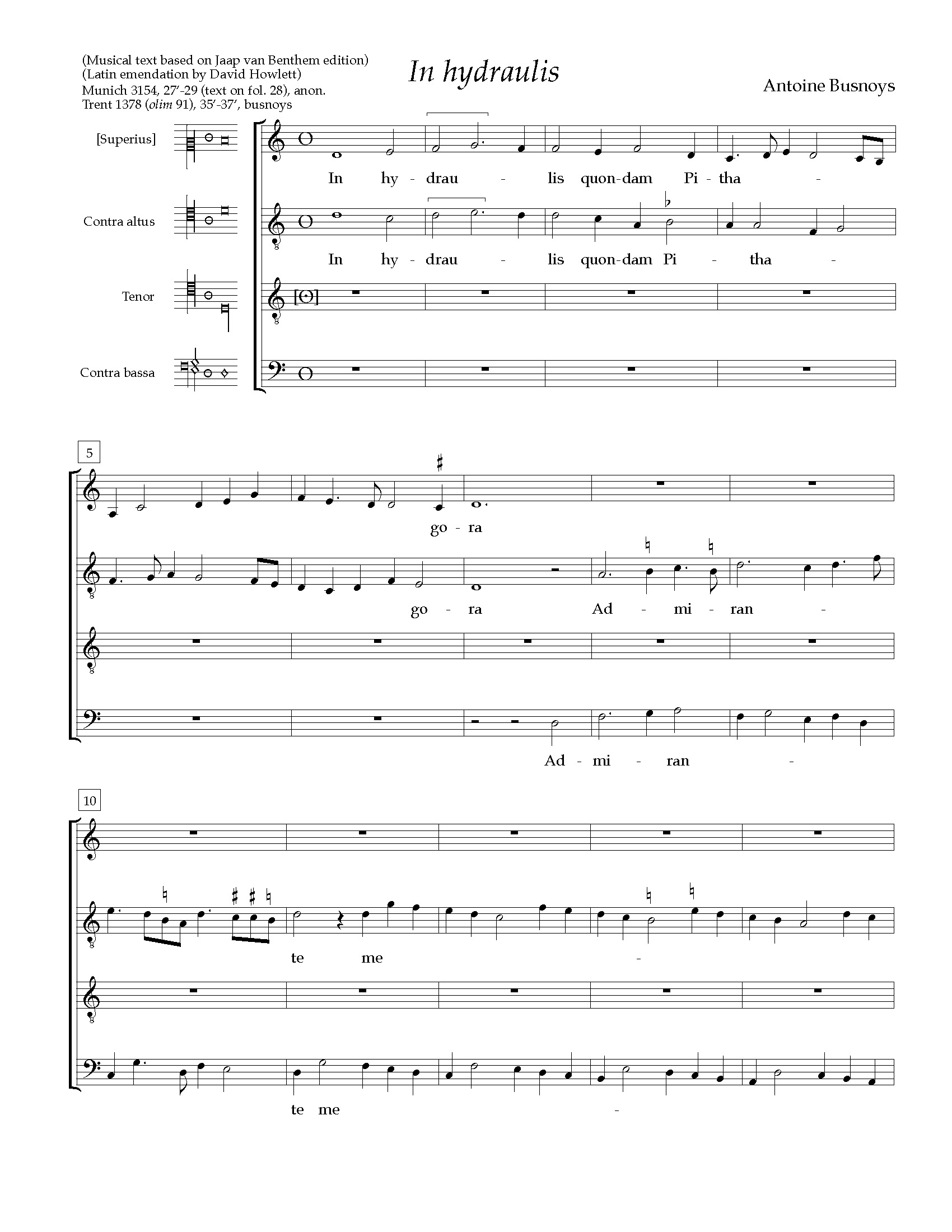
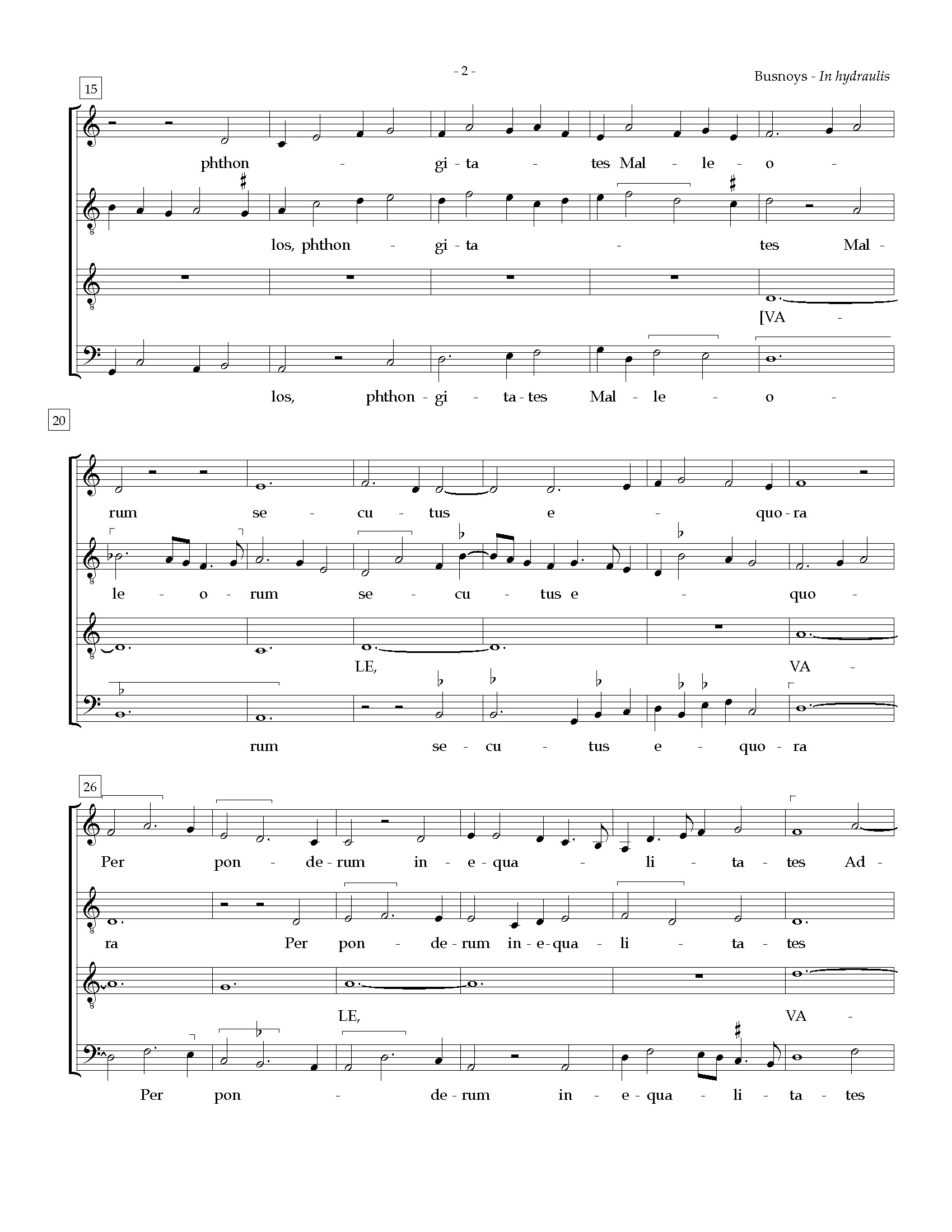
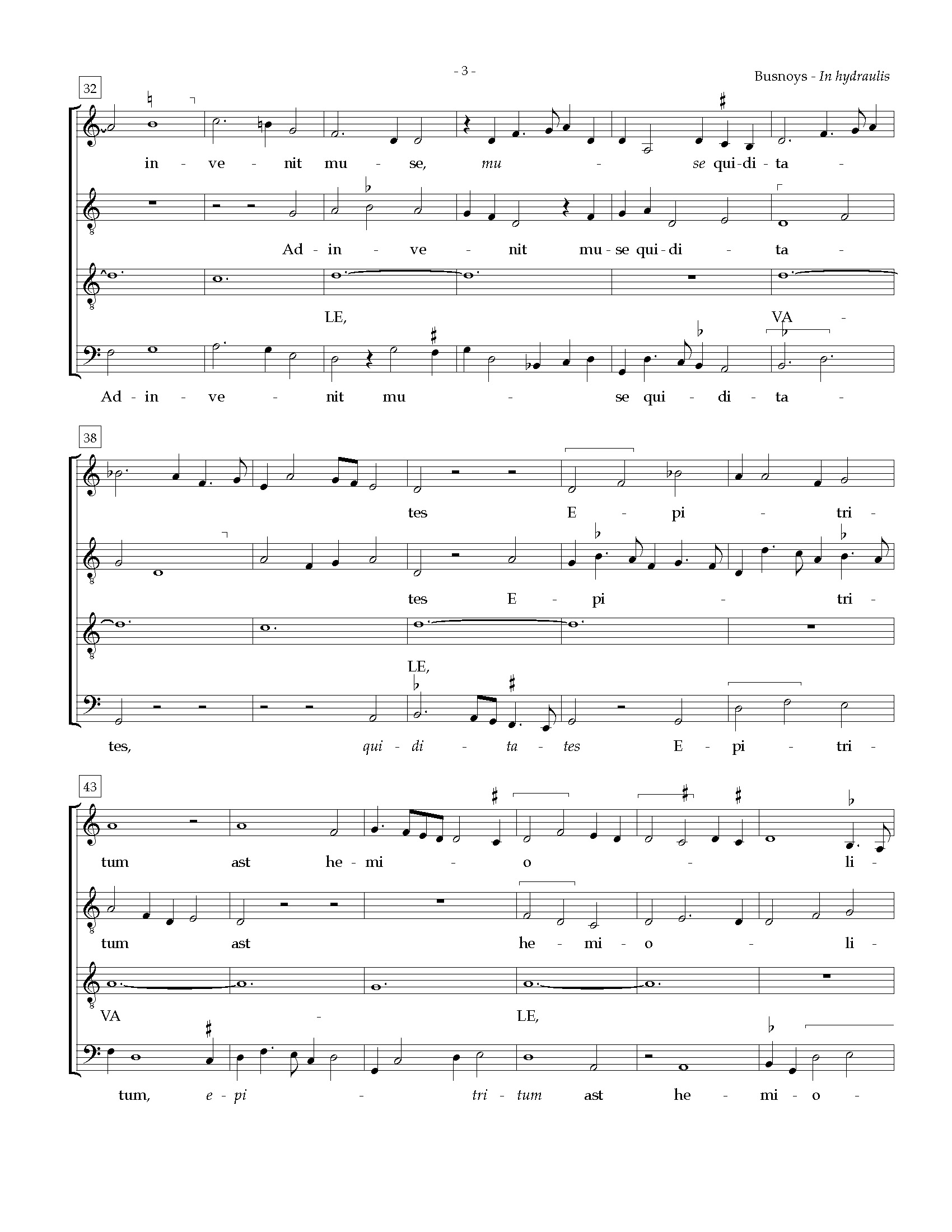
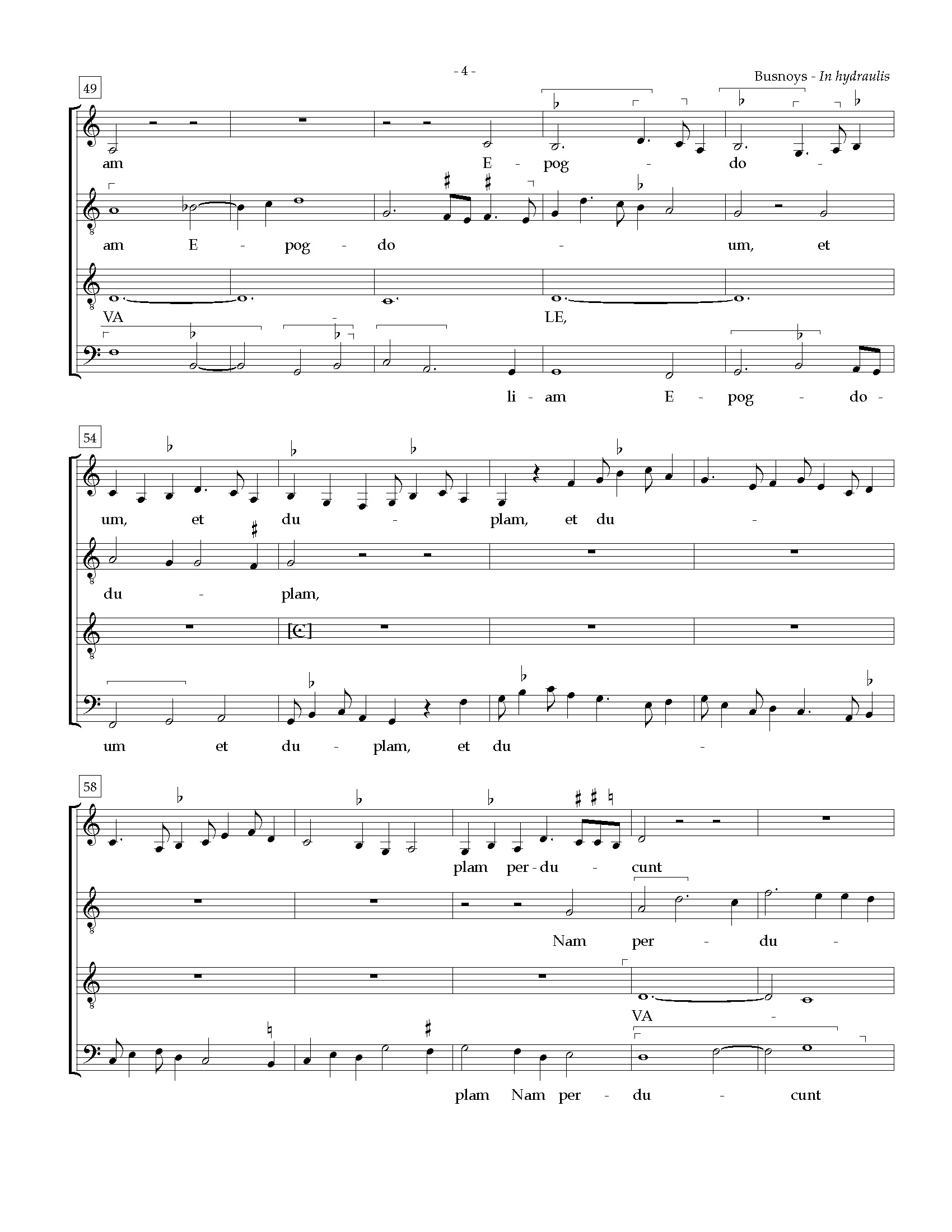
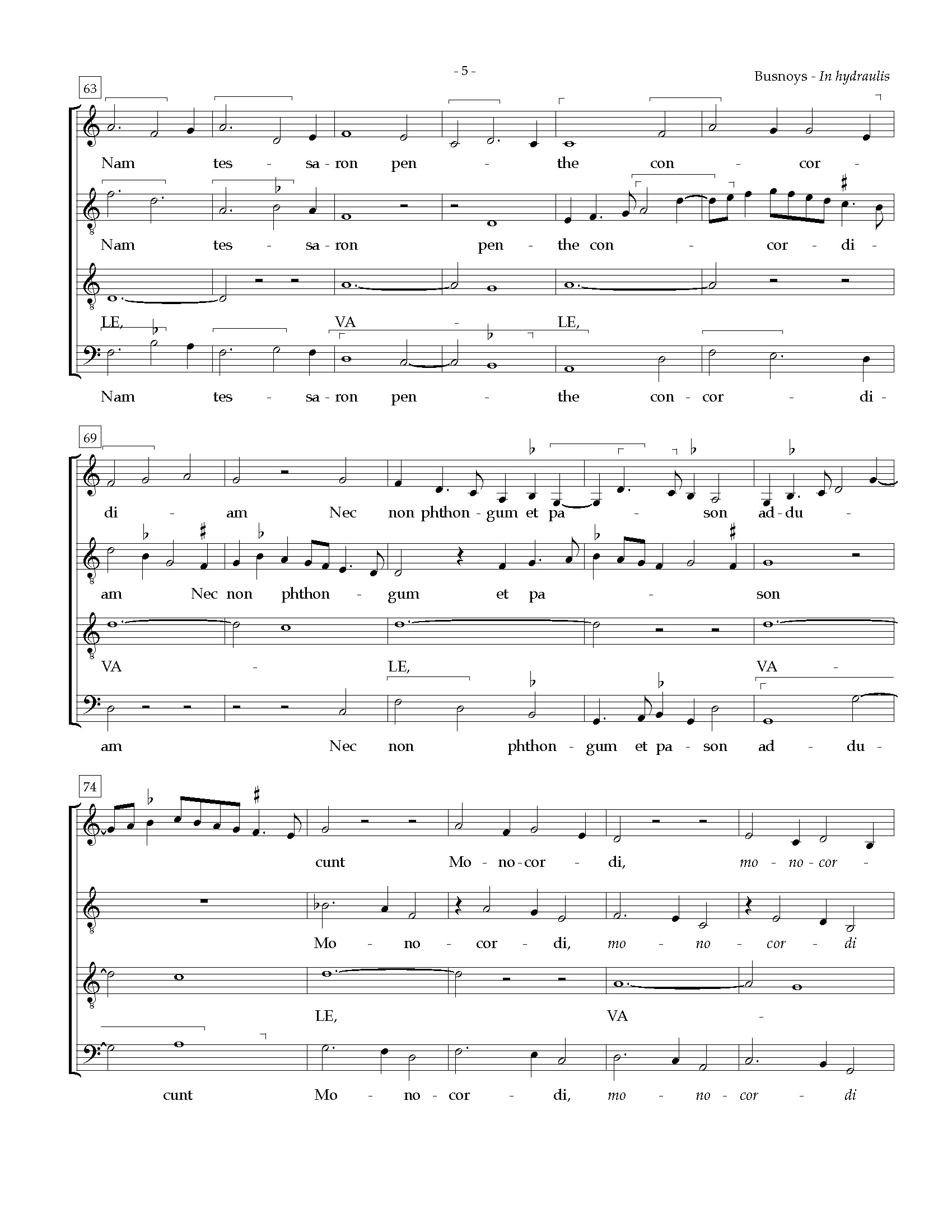
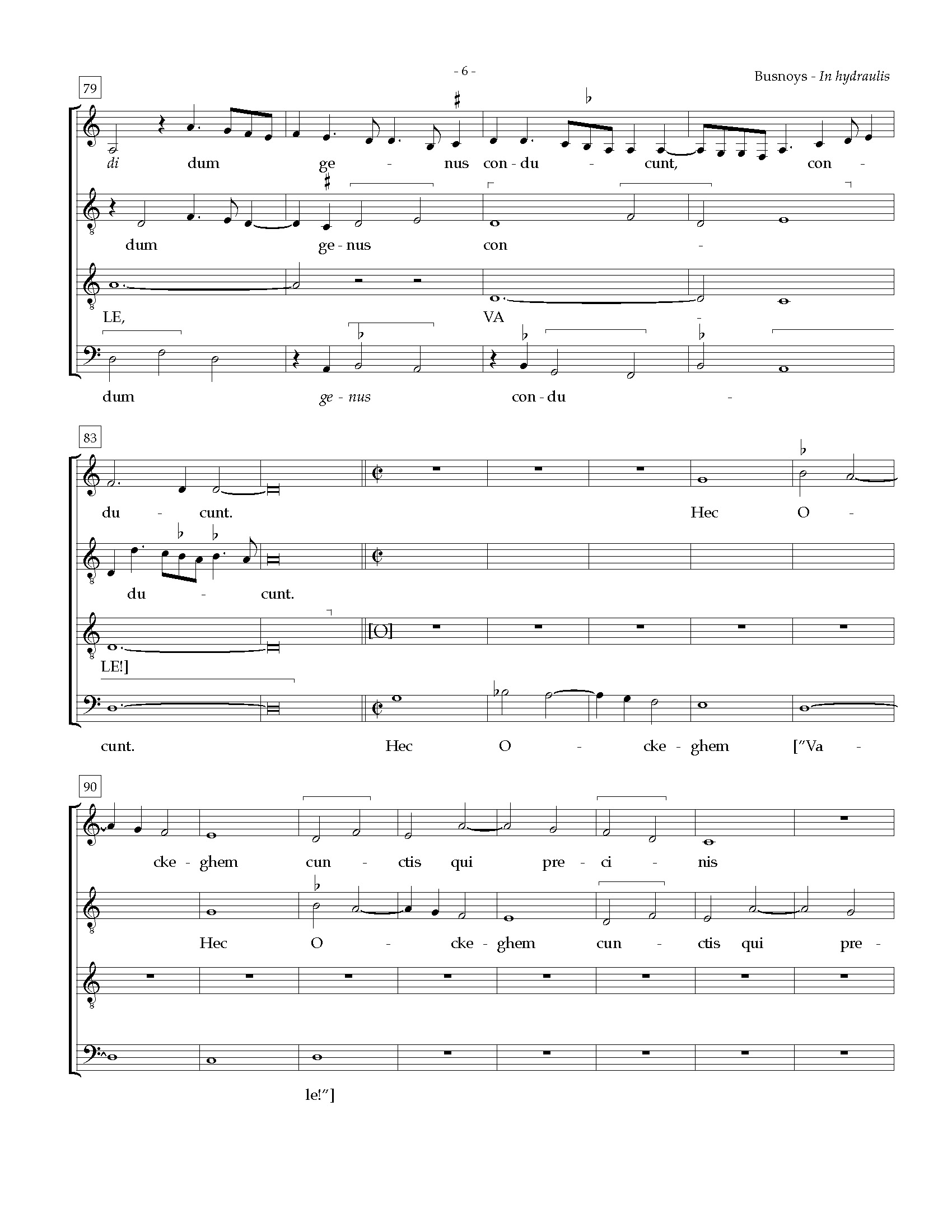
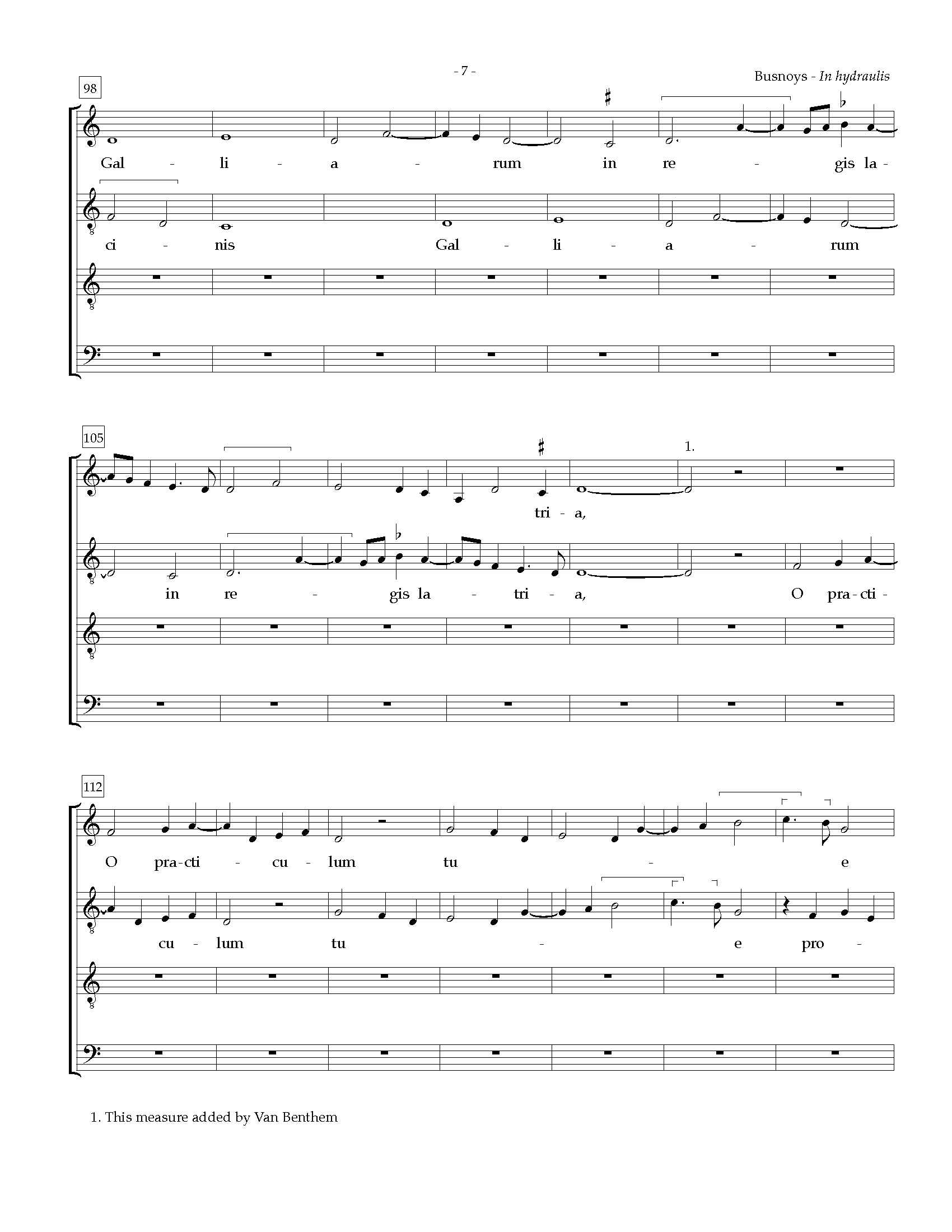
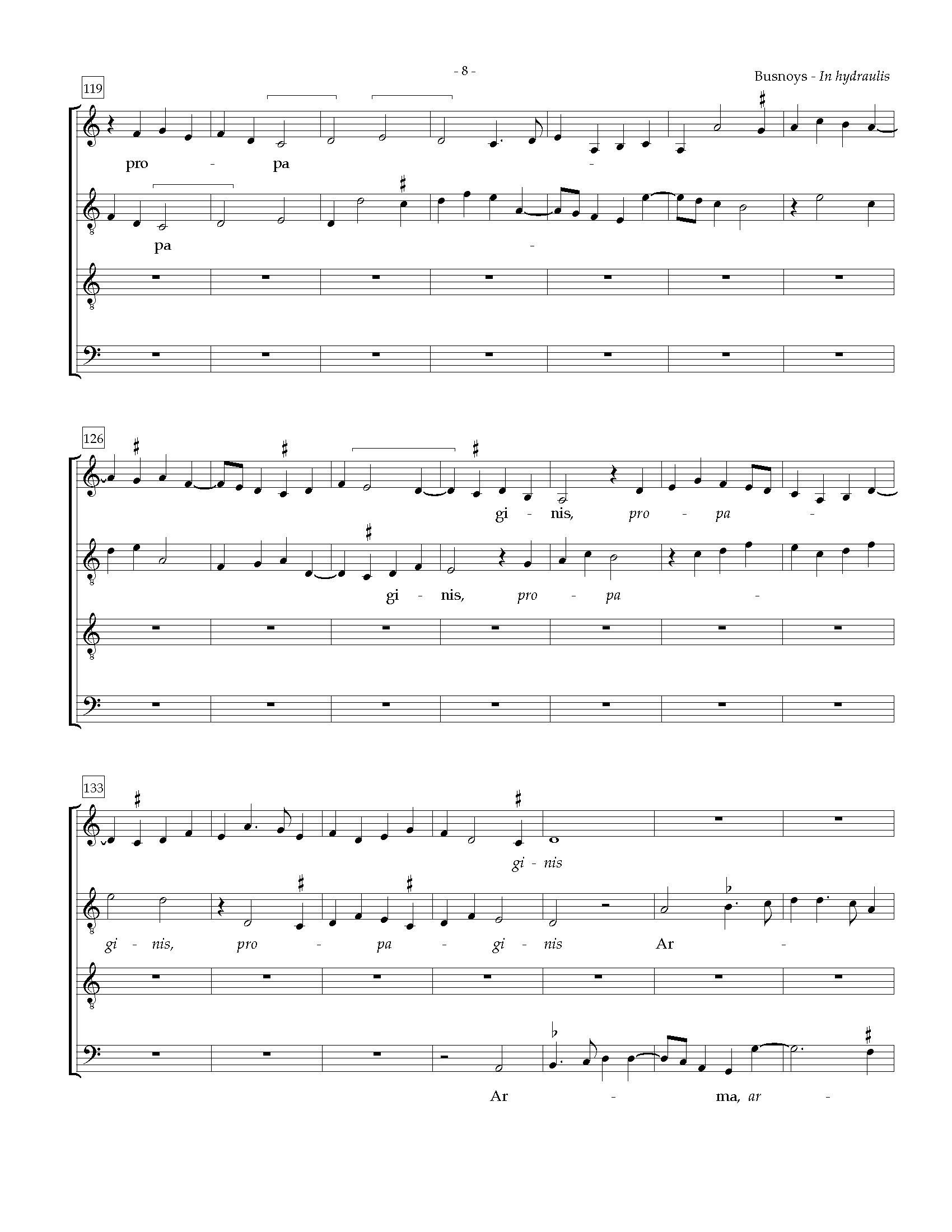
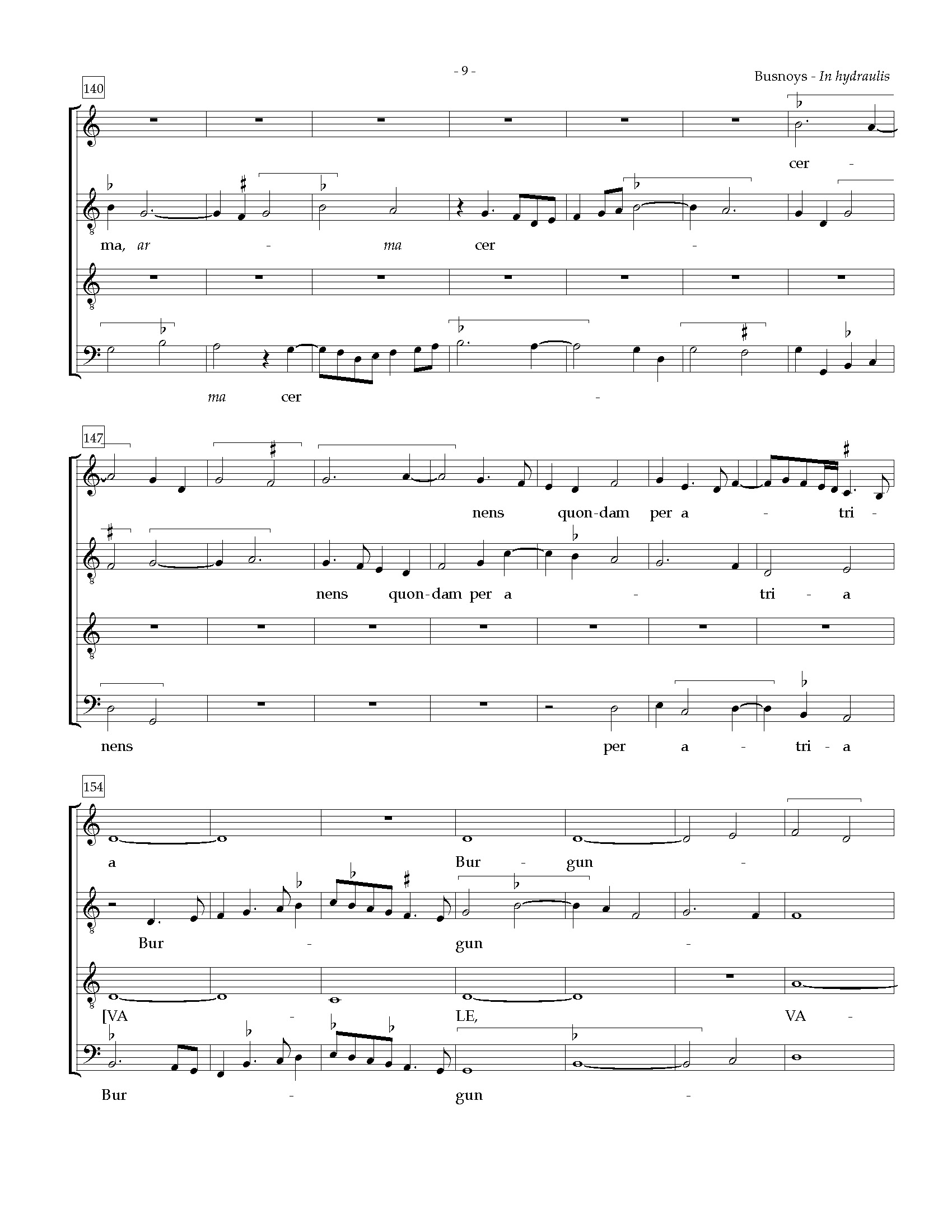
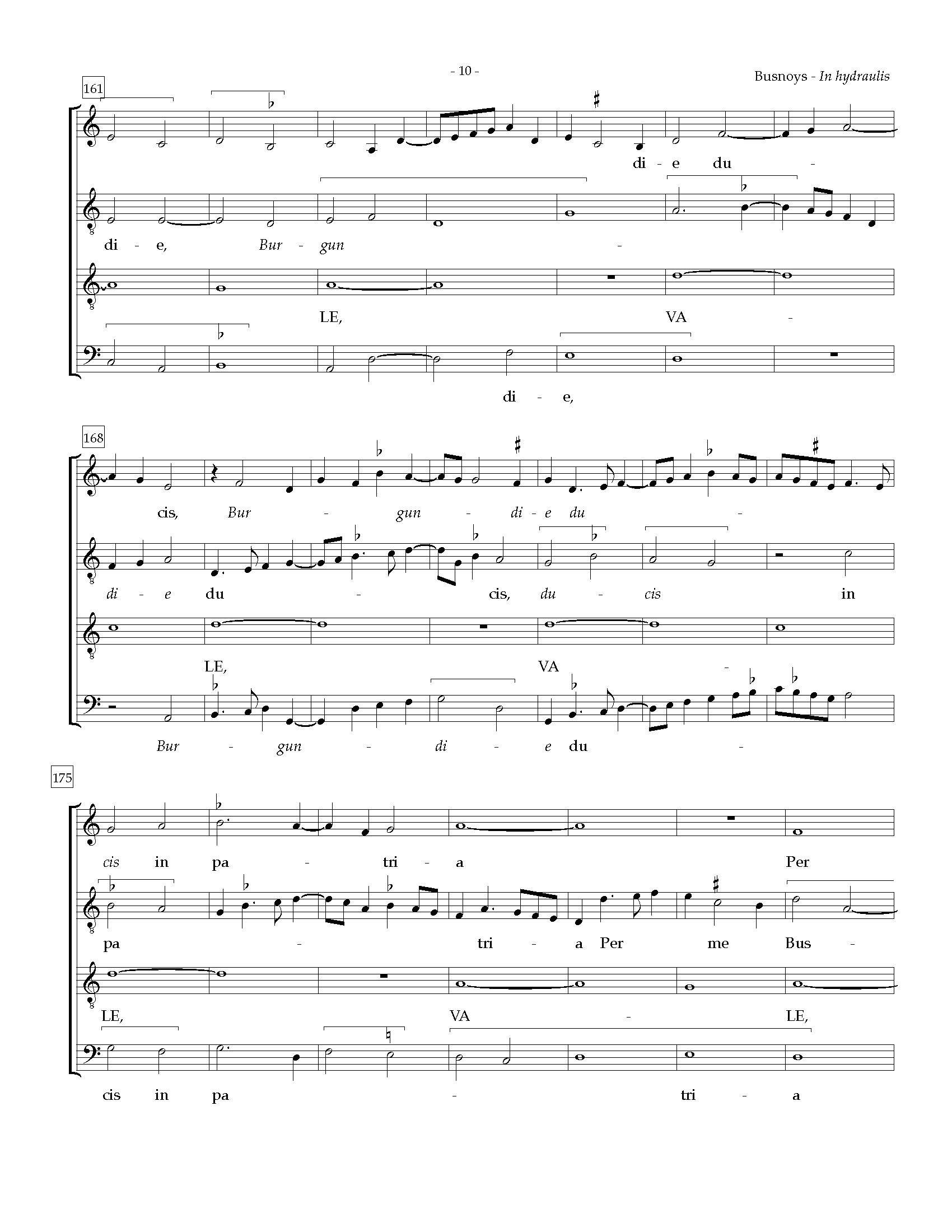
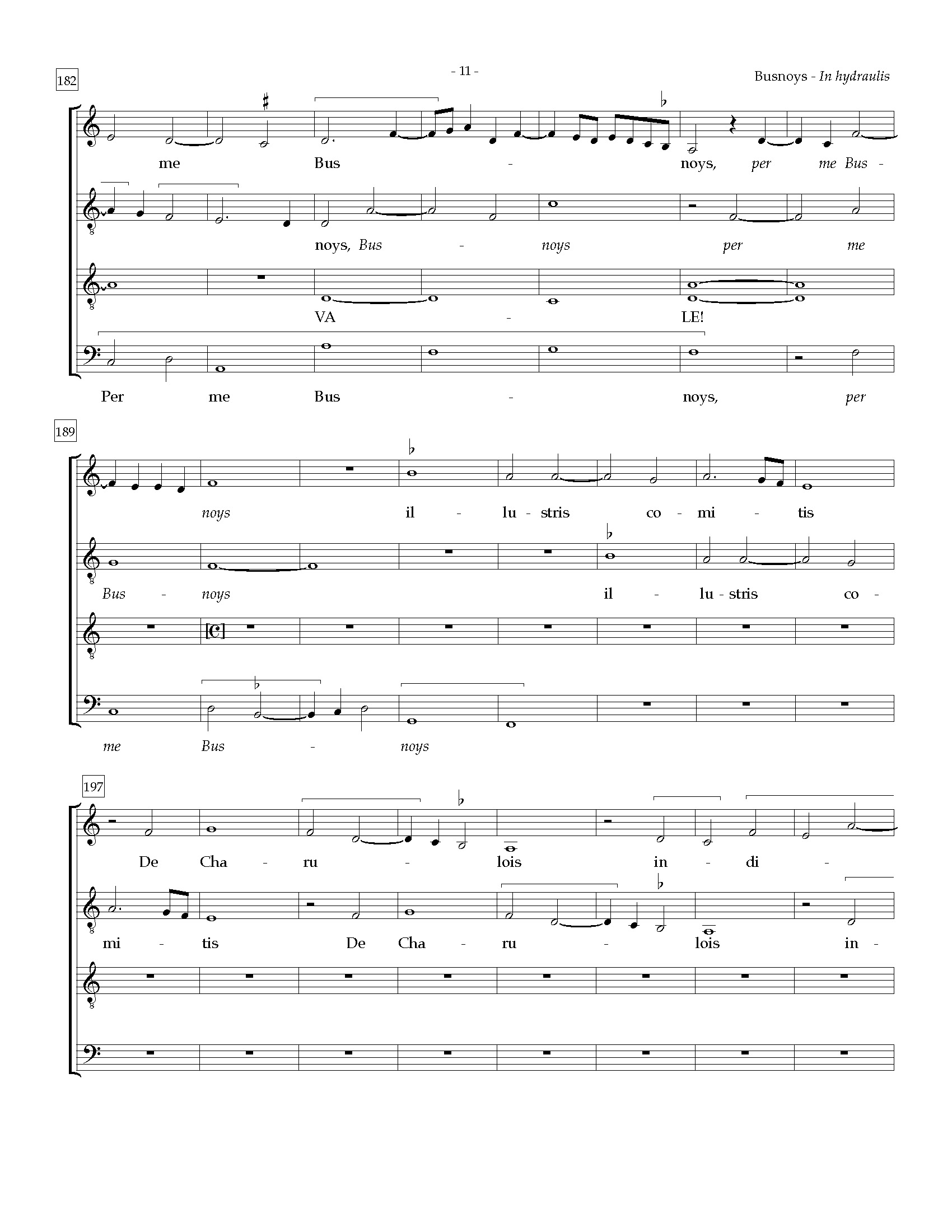
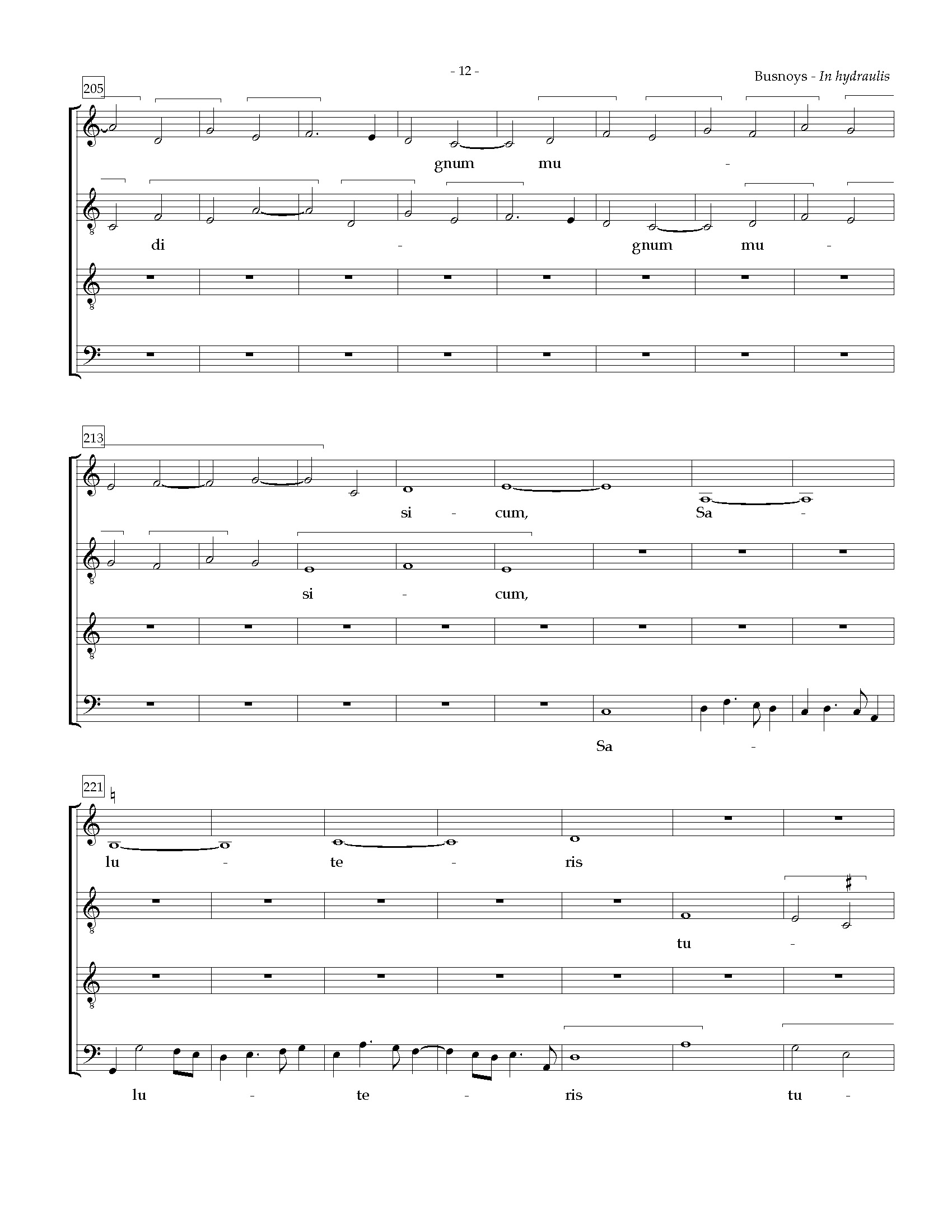
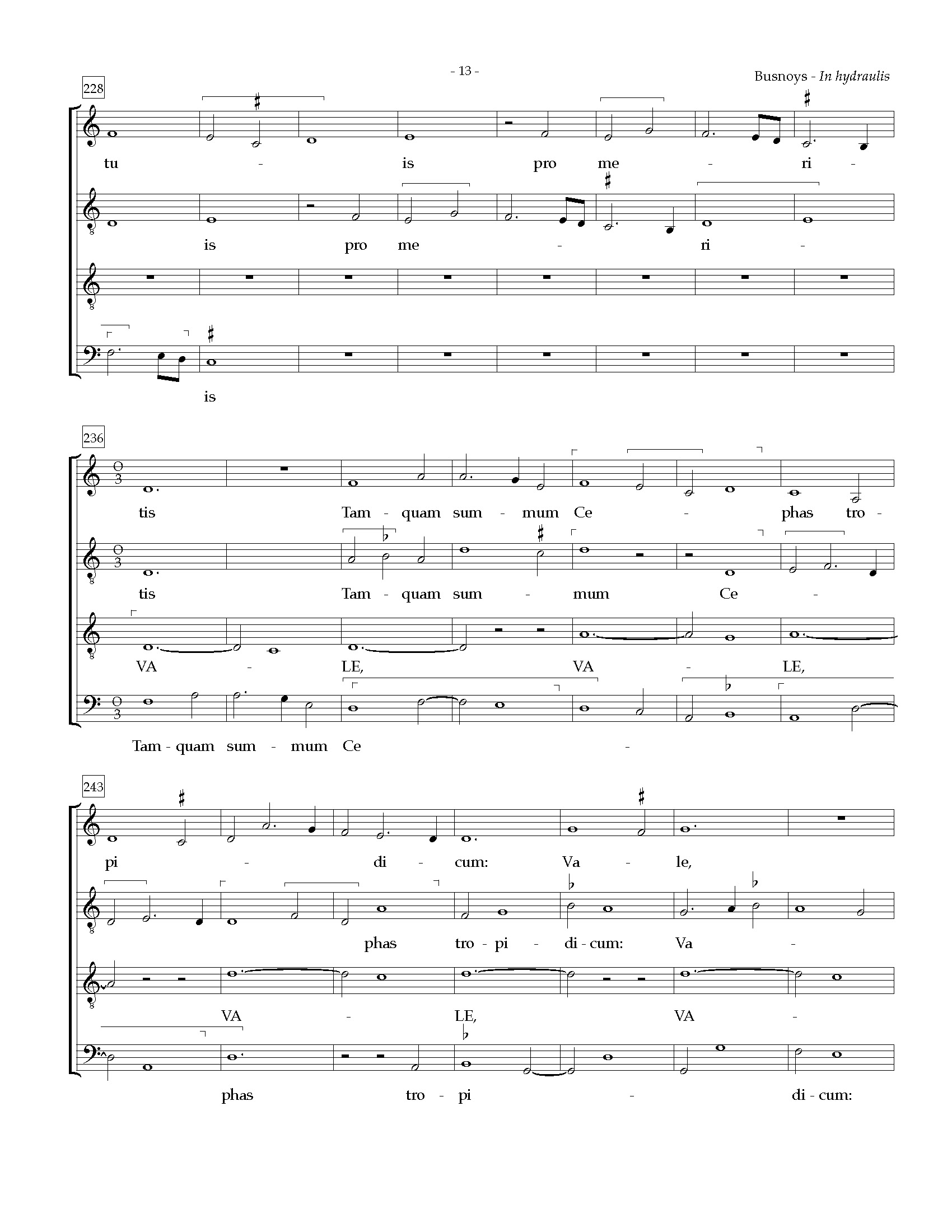
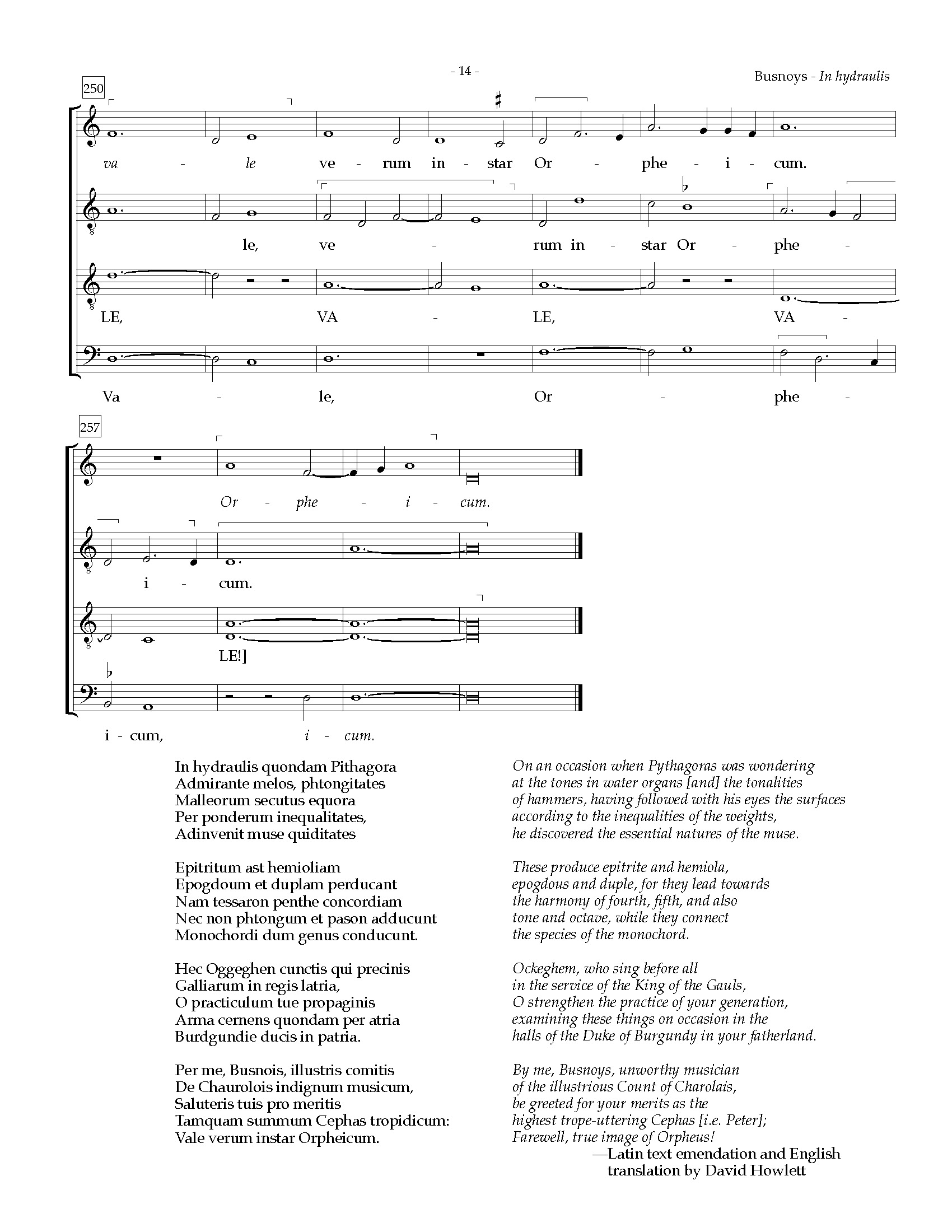
|
|